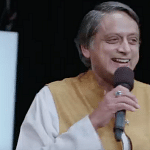
Sharp fall in oil prices is opportunity for India to increase stockpile
Shashi Tharoor | Lok Sabha MP from Thiruvananthapuram
The Indian Express
Tharoor writes that while the economic impact of Covid-19 is going to be “drastic” for India and the world, the sharp fall in oil prices presents an opportunity to increase its stockpile. He states that the decline in oil prices globally is an opportunity for the central government to increase its Strategic Petroleum Reserves (SPR) stockpile and achieve “a degree of energy security”, which is important at a time when rupee needs to be conserved to “get back on a positive economic track and lift the most vulnerable segments of our population”.
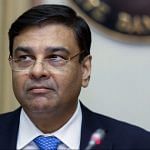
RBI should preserve its inflation credibility
Urjit Patel | Former Governor, Reserve Bank of India
The Indian Express
Patel writes that in times like this pandemic, the RBI should preserve its inflation liquidity. Patel argues that this can be achieved by making the Monetary Policy Committee (MPC) more “enduring, [and] not bypassing it”. He notes three points that need to be adhered to — decisions on monetary policy actions should be based on voting by committee members, provision of inflation and growth forecasts should be mentioned in the committee’s resolution statement and it should also coordinate rate-setting and liquidity management. The former RBI governor states that even in unpredictable and desperate times, not only must due process be followed, but also extraordinary actions taken must be justified with substance so that the “commitment is provided as to how these actions will be unwound when necessary”,
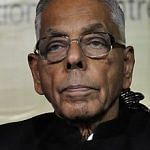 The script of disruption and a new order
The script of disruption and a new order
M.K. Narayanan | Former National Security Adviser & a former Governor of West Bengal
The Hindu
Narayanan argues that the Covid-19 pandemic is unprecedented and it is unlikely that the world will ever be the same again. “Abnormal could well become the new normal,” he writes. Narayanan notes that pandemics have often changed the world, and even though commentators are talking of alterations in business norms and governance, the bigger challenge is “the extent to which the pandemic will impact human values and conduct”. Narayan argues that while many aspects of this crisis will impact the world, economic contraction and job losses further complicate the situation. “Post COVID-19, the world may have to pay a heavy price in terms of loss of liberty. An omnipotent state could well become a reality,” the former NSA writes.
 Return of the Leviathan? Argument for a strong state in the wake of Covid-19 is not morally persuasive
Return of the Leviathan? Argument for a strong state in the wake of Covid-19 is not morally persuasive
Parsa Venkateshwar Rao Jr |Political commentator
The Times of India
Rao writes that the Covid-19 pandemic resembles a war like situation, where governments have assumed “extraordinary powers”. Rao notes that the move towards a “stronger state within strict national boundaries” is a response to both economic crises and medical emergencies like Covid-19 and that in an emergency “individual freedoms will have to be curtailed for the greater good of society and the polity”. He argues that amid the Covid-19 pandemic and economic recession, the state’s role has to be “more pronounced than it has been in the last decades of economic liberalisation and globalization”.
Need a comprehensive law on epidemics in post Covid-19 situation
Ishan Khare and Pratyush Nigam | Students at the National University of Juridical Sciences, Kolkata
Hindustan Times
The writers stress the importance of the protection of civil rights while maintaining the lockdown. The lockdown has put the government in a very peculiar situation — on one hand it has to ensure civil rights and on the other has to curb the outbreak of the disease. The writers argue that the remedy in such a situation and for future crises lies in creating a comprehensive legislation that specialises in dealing with such cases, which provides a “detailed road map of the course of action and a clear demarcation between rights and liberties”.
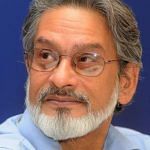 Politics of a pandemic
Politics of a pandemic
Pronab Sen| Former Principal Economic Adviser, Planning Commission and Chief Statistician of India
The Financial Express
Sen writes that the Covid-19 pandemic has given Prime Minister Narendra Modi the opportunity to “set things right” with the states that were asserting more and more authority earlier. Health is a state subject and thus they dealt with the pandemic in the best way they could under state legislatures “with the Centre nowhere in sight”. However, on 24 March, the Prime Minister took over and muscled his way through with a nationwide lockdown. Sen notes that the central government has also been “punctilious” about releasing the states’ share of central taxes as per the Finance Commission award.
This is despite the fact that the central government can borrow at less than 7 per cent interest, which can then be lent to states. If this continues, Sen predicts that the states will end up with a “large permanent liability on their budgets”. And PM Modi would have achieved “cooperative federalism” that he has promised through the principle of “cooperate or else…”
 The backstory of reserve bank of India’s cash window for mutual funds
The backstory of reserve bank of India’s cash window for mutual funds
Monica Halan | Consulting editor, Mint
Mint
Franklin Templeton Mutual Funds shut off six high-yield debt funds Friday citing redemption pressures and a liquidity crunch. Halan explains that mutual funds usually “have a certain calculation of how much redemption will take place on a day and have cash ready for that”. However, when there is a sudden rush of redemption, funds can borrow upto 20 per cent of their net assets to meet this redemption. “What happened with Franklin Templeton MF is that even with that borrowing the sell requests piled up, leading to this first-of-its-kind decision to freeze the funds,” writes Halan.
Halan argues that this is “reminiscent” of the 2009 crisis when a similar window opened up to stabilise the market. She advises that investors must not “distrust the market” rather understand their “risk-return appetite”.
 Slight ease in lockdown gives hope to the desperate, improves employment
Slight ease in lockdown gives hope to the desperate, improves employment
Mahesh Vyas | Managing director & CEO, Centre for Monitoring Indian Economy P Ltd
Business Standard
Vyas notes that the latest weekly unemployment rate is the lowest during the national lockdown. He notes that this could be due to the partial relaxation of the lockdown on 20 April. However, this fall is also accompanied with a fall in labour participation rate, which has dropped from 42.6 per cent in the week of March 22, just before the lockdown, to 35.4 per cent in the latest week. This implies that 7.2 per cent of the working population has quit the labour markets during the lockdown.
Today’s Editorials
The Indian Express: In his conference with chief ministers, Prime Minister Narendra Modi said that we have to give importance to the economy as well as continue to fight against Covid-19. This signals a cautious shift in strategy, according to the daily. It suggests that both states and the Centre must work together to allow economic activity while minimising the health fallout, it notes.
The Times of India: The announcement of a special liquidity facility of Rs 50,000 crore for mutual funds by RBI is a positive step, according to TOI. This signals that the central bank will act as a backstop and this measure will prevent panic stricken redemption of mutual fund units, the daily comments.
Hindustan Times: The daily suggests that the RSS should hear its own chief Mohan Bhagwat’s advice when he said that the transgressions of a few should not lead to targeting an entire community. The Tablighi Jamaat incident was used to blame Muslims for the spread of disease in India. Bhagwat must now ensure that his advice is enforced in letter and spirit on the ground by his cadres, writes HT.


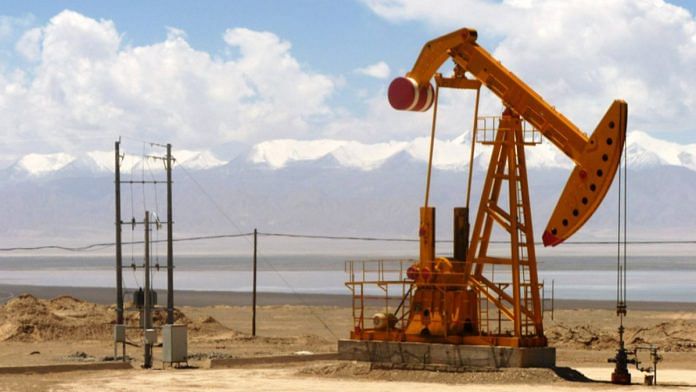

RBI and Govt. Only talking about monetary liquidity to banks and other financial institutions. Where is the money got in PM care fund. This is not for monetary and fiscal adjustments but for the direct supply towards cash and kind to be distributed among the 80 percent of the unorganised sector workers and other vulnerable sections of the people. Did the Govt.do that? No. If these sections of people are un employed and having no purchasing power, what would the effect of RBI and Govt funding to banking sector?.